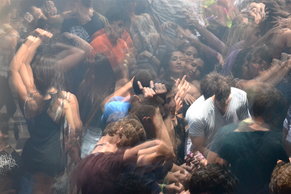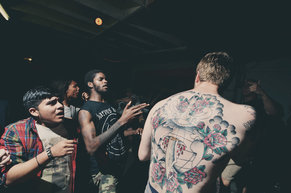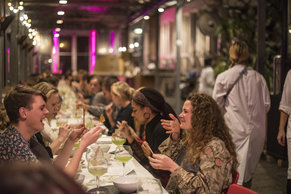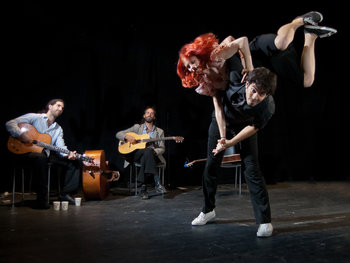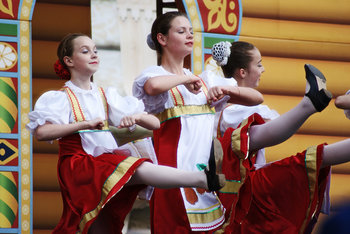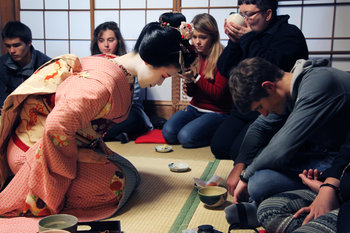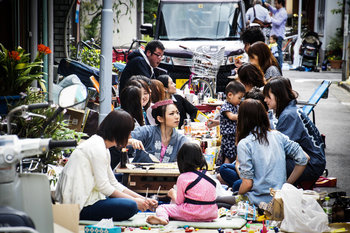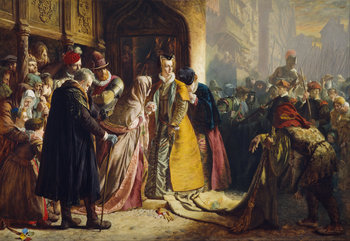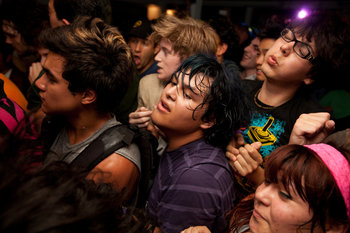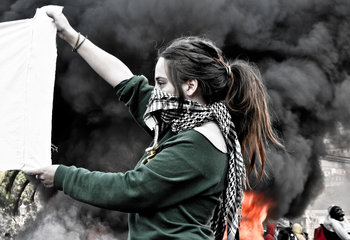
Government
A power structure that is in fact controlling a nation beyond an official government. For example, a situation where the military has taken power from an elected government.De facto legislative authority rests with corporate interests.
Authority
Real authority often differs from formal authority. For example, an individual with well developed leadership abilities and social connections may have far more influence than their position would indicate.Rick managed the team but Andrew had de facto decision making authority.
Standards
Standards that have emerged on a voluntary basis in response to conditions as opposed to those designed by governments or standards organizations. For example, competition may drive quality improvements that become a basic expectation for a product.It has become a de facto standard for juice products marketed to children to be 100% juice.
Rights
Rights that have been established by custom as opposed to law. For example, a park that has allowed dogs for 50 years that suddenly bans dogs based on the argument that the right to bring in dogs never existed in the first place.It was the de facto policy of the park to allow dogs for more than 50 years.
Responsibilities
Responsibilities that have been established by the past as opposed to systems such as law.It is a de facto practice for teachers to monitor the school yard at lunch.
Customs
Rights, responsibilities, expectations and norms that are established by cultures over time without any formal documentation.It is a long standing norm in the neighborhood to allow children to play in the street as there was little public space in the area. As such, the street is a de facto play street.
Language
The languages used in a particular situation. For example, a government with one official language that commonly provides services in other languages such that this becomes a reasonable expectation over time.It has been the de facto policy of the government to allow applicants to take the driving test in English.
Family
Family relationships and structures that are established without any registration with authorities. For example, a couple who live together and act as a married couple without registering the marriage.It is the de facto arrangement between the mother and father to share custody of both children.
Discrimination
Organizations and systems that discriminate based on identity. This may be based on unwritten rules and other systems that are designed to avoid documentation of negative practices.It is the de facto practice of the restaurant to provide a poor level of service to those they perceived as "foreign" customers and to give "locals" preferential treatment.
De Facto vs De Jure
De facto are rules, norms, expectations, habits, policies, standards, arrangements and facts that exist in reality that aren't necessarily documented. De jure are rules, regulations, standards, situations, states and statuses that are officially registered by a system such as a legal system whether they reflect reality or not.Notes
The examples above are illustrative.| Overview: De Facto | ||
Type | ||
Definition | A reality that differs from official documentation and systems. | |
Related Concepts | ||


